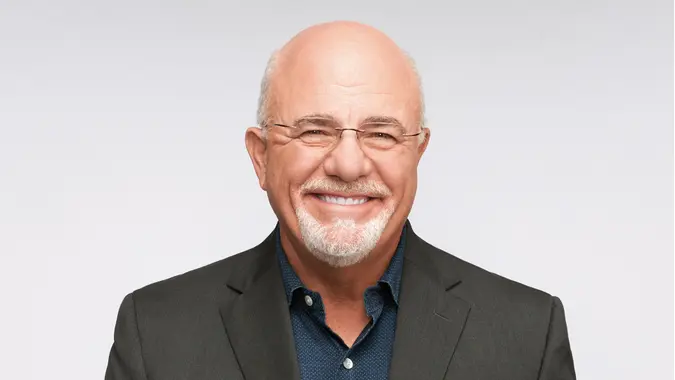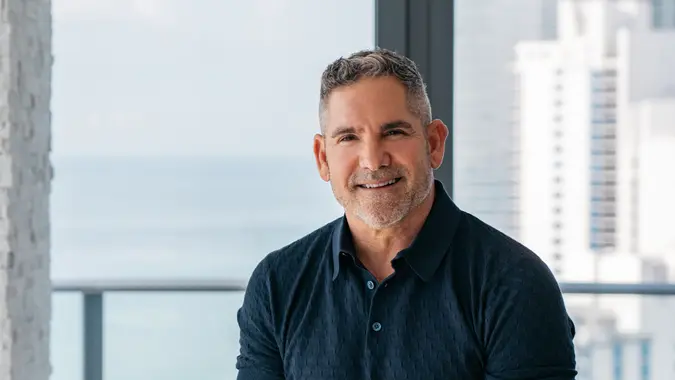The Financial Guide to Adulting: Real Money Advice From Successful Gen Zers

Commitment to Our Readers
GOBankingRates' editorial team is committed to bringing you unbiased reviews and information. We use data-driven methodologies to evaluate financial products and services - our reviews and ratings are not influenced by advertisers. You can read more about our editorial guidelines and our products and services review methodology.

20 Years
Helping You Live Richer

Reviewed
by Experts

Trusted by
Millions of Readers
Generation Z is stereotyped as teens who spend all day on TikTok and Instagram, but many of them have already graduated college, embarked on careers and even started families. Ranging from 9 to 24 years old, these ‘digital natives’ are blazing their own path in an ever-changing economy.
The Financial Guide to Adulting: Real Money Advice From Older Generations
Related: 51 of the Biggest Money Influencers on TikTok and YouTube
But zoomers have faced their share of challenges. The oldest among them have experienced both the Great Recession and the COVID-19 pandemic, the consequences of which include higher unemployment levels, lost education and job opportunities and a lingering feeling of uncertainty around finances. It’s a unique set of circumstances that can make financial independence a daunting task.
Daunting, but nowhere near impossible. GOBankingRates asked these three successful Gen Zers for their best money advice to give fellow zoomers. And despite being one of the youngest generations, they’re already proving they can be savvy when it comes to personal finance.
Check Out: 34% of Gen Z Is Learning Personal Finance From TikTok and YouTube, Survey Finds
Live Below Your Means
“As someone who is proud to be a Gen Zer, I have found that there are many ways to be successful with your finances even at a young age because of the advancement of technology,” said Austin Glanzer, owner of 717HomeBuyers.
“My wife Liz and I got married at the ages of 20 (me) and 22 (her) in 2017. At that time we had less than $2,000 in our bank account. We were so poor in fact, we weren’t even sure if our wedding gifts would pay for our honeymoon, but we were young and in love! Now we own five rental units personally, 10 storage units, have over $25,000 saved in a Roth IRA and have been able to buy a single-family home where the cash flow from our rentals covers our entire mortgage payment.
“(First, you should) live below your means. Liz and I both got jobs out of college that paid roughly $35,000 each. We decided that we would only live on one income and save all of our extra money to invest. Believe it or not, this was not hard at all! We both drove cheap cars, shopped at Aldi and bargain outlets and didn’t buy things we did not need.”
See: 7 Moves Gen Z Should Be Making To Protect Themselves Financially
When Investing, Look At Your Cash-on-Cash Return
“When you are young, your cash is incredibly valuable because you don’t have much of it — so you need to make every dollar count. Cash-on-cash return is the cash income earned on the cash invested in an investment,” Glanzer explained.
“For example: in real estate, this is the amount of money you need down versus the amount of money you will get returned in rent after the first year. For Liz and I, we were able to buy a triplex with an FHA loan for a total of $12,500 out of pocket. This triplex gave us a total of $13,000 return in the first year; so our cash-on-cash return was over 100%. I would take that any day in the stock market! We were then able to repeat that process and buy another property.”
For context, the average stock market return on investments is just 10%. Although, that’s better than the 0% you get with your cash sitting in a checking account.
Take a Look: Crypto and 5 Other Groundbreaking Investing Trends for Gen Z
Invest In a Roth IRA
“A Roth IRA is a retirement account where you pay taxes on the money you put into the account so that when you withdraw it in the future, it will be tax-free. Liz and I put $500 a month into the account, invested it in mutual funds and it has grown to over $25,000 in less than three years since we started the account. This is incredibly easy to set up and you can do it on a website like Betterment.com in less than 15 minutes,” Glanzer said.
You should also take advantage of your employer’s 401(k) program if they offer one. A 401(k) is the opposite of a Roth IRA: Your money goes in pretax and is taxed instead upon withdrawal. The benefits of a 401(k) are that it reduces your current taxable income — meaning you’ll pay less in income taxes — and if your employer offers a matching contribution, that’s free money in your retirement account.
The Ultimate Financial Planning Guide: Do It Like the Pros in 6 Steps
Try a Real Estate Crowdfunding Platform
Investing directly in property like Austin and Liz did is feasible for young people with careful planning, but often takes years of saving. One way to bypass this is by real estate crowdfunding instead — pooling your money with other investors into one asset, and then sharing the rewards. There are a growing number of sites that help investors accomplish this.
Heidi Butler, a 24-year-old accounting analyst at Neighborhood Ventures, works for one of them.
“The best part is that our investors can start small. I’ve invested $3,000 in two projects and I’m already receiving monthly distributions. I love that real estate crowdfunding lets me buy a share of an apartment building with dozens of other people, and when that building is renovated and sold, I can take my earnings and do it again,” Butler said.
Check Out: 8 Insider Tips To Get Rich in Real Estate
Build an Emergency Fund
“One way to know you’re an adult is that you now have to pay for things you don’t want to pay for — things like insurance and household appliances, to name a few. This also includes being responsible for when your car gets damaged in an accident, replacing your HVAC system when it breaks and continuing to pay back your student loans for years to come. Thus, it is important to have an emergency fund, which ideally is three to six months of your fixed monthly expenses set aside in case of an emergency,” said Jenny Jesup, CFP at Bridgeworth Wealth Management. “If that number is too overwhelmingly large, simply start with $1,000 in a separate bank account to use when an emergency hits.”
More From GOBankingRates
 Written by
Written by  Edited by
Edited by 

























